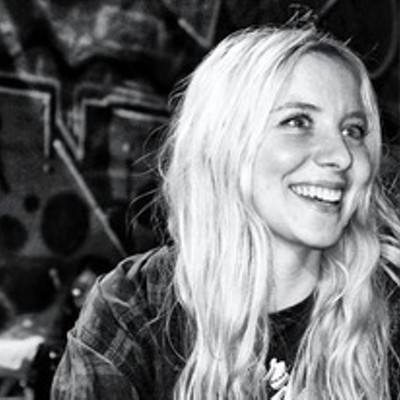Miami tops of a lot of nationwide lists, especially when those lists have to do with climate change or luxury housing. The Magic City is the second-most vulnerable to coastal flooding in America and the most vulnerable to hurricanes — yet somehow it's also one of the most expensive real-estate markets on Earth.
Even as the 305 has become the most expensive place for millennials, with the highest percentage of “worst-case needs” renters and requiring residents to spend a higher share of income on rent than any other American city, Miami-Dade has doubled down on luxury houses and condos, building so many new high-end units that it could take four years just to fill them all. In fact, Miami also takes first place in a ranking of cities with assets exposed to coastal flooding. In sum, if this city sinks thanks to sea-level rise and climate change, thousands of expensive homes are going down with it.
But for the billionaire preppers hoping to stick it out in South Florida, Arkup is here. Arkup is a new design firm that specializes in solar-powered, sustainable, “luxury livable yachts,” or “arks.”
The 4,350-square-foot, four-bedroom, four-and-a-half-bathroom floating homes are as mobile as any large boat — with 272 horsepower — but they can also become as stable as any house on land. Each unit is equipped with retractable hydraulic "spuds" that can lift the structure out of the water onto 40-foot stilts.
Arkup says its designer vessels are flood-resistant, capable of withstanding Category 4 hurricane winds, fully off-the-grid, and able to motor away from serious tropical storms. That's why their makers are marketing them as “future-proof.”
“In addition to having all the features of a regular boat, it’s completely solar electric,” says Nicolas Derouin, one of Arkup’s founders. “The roof is covered with solar panels. The propulsion is electric; the thrusters are electric. There’s no noise, no gas, no emissions. In addition to generating solar power through the roof, it’s also storing energy in the hull battery. It collects rainwater, stores it, and purifies it. You can live completely off-grid.”
The sleek “avant-garde” structures look like a lot of modernist waterfront properties — crisp lines and off-white interiors — but they can move around when owners tire of the view. Best of all, Derouin says, no property taxes. Anchor your ark just off the coast, and you’re in international waters.
The Miami-based business is helmed by Derouin and his partner, Arnaud Luguet, who became friends in a Parisian high school nearly 25 years ago. Luguet, who has a background in architecture and renewable energies, designed the “future proof” vessel over the course of nearly three years of research and 3D modeling. Derouin, who began his career in business development, signed on to the project in 2016 to oversee the finances.
Now the two are halfway through building their first model at the Merrill-Stevens boatyard. So far, they have built only the structure, but they hope to have the first ark finished by August, ready for a soft launch by early October, and on display at the Fort Lauderdale Boat Show a few weeks later.
Once the first model has been completed, Derouin says, the "livable yacht" concept will be customizable to the buyer's needs, with an option to exchange the solar roof for a lounging terrace or to discard other off-grid features for a more conventional yacht.
The homes will sell for a cool $4.5 million each, but Derouin says Arkup has a “lower-income” version in the works — they go for about $2.5 million.
The company ultimately aims to create entire neighborhoods based on the houseboat communities of the Netherlands (Luguet is half Dutch), according to Derouin. These “floating communities” will be economically diverse, he says.
“They won’t just be filled with billionaires,” Derouin says. There will also be some millionaires waiting out the floods.
[
{
"name": "Air - MediumRectangle - Inline Content - Mobile Display Size",
"component": "19274298",
"insertPoint": "2",
"requiredCountToDisplay": "2"
},{
"name": "Editor Picks",
"component": "17482312",
"insertPoint": "4",
"requiredCountToDisplay": "1"
},{
"name": "Inline Links",
"component": "18711090",
"insertPoint": "8th",
"startingPoint": 8,
"requiredCountToDisplay": "7",
"maxInsertions": 25
},{
"name": "Air - MediumRectangle - Combo - Inline Content",
"component": "17482310",
"insertPoint": "8th",
"startingPoint": 8,
"requiredCountToDisplay": "7",
"maxInsertions": 25
},{
"name": "Inline Links",
"component": "18711090",
"insertPoint": "8th",
"startingPoint": 12,
"requiredCountToDisplay": "11",
"maxInsertions": 25
},{
"name": "Air - Leaderboard Tower - Combo - Inline Content",
"component": "17482313",
"insertPoint": "8th",
"startingPoint": 12,
"requiredCountToDisplay": "11",
"maxInsertions": 25
}
]
















